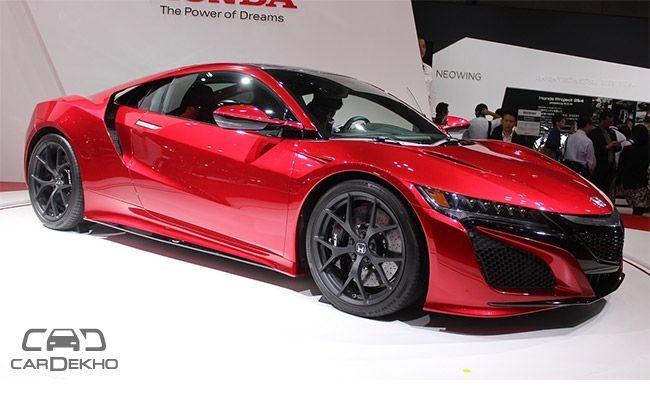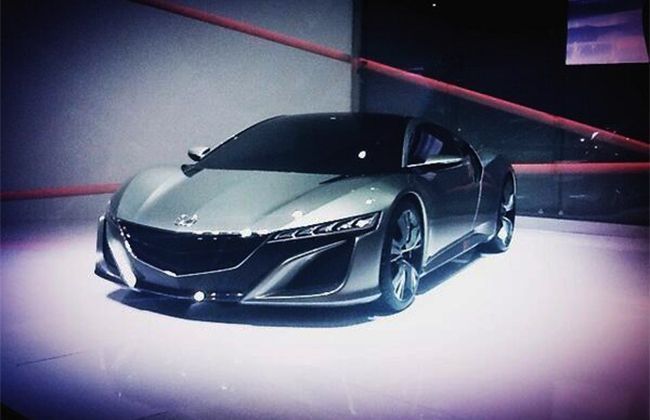2015TokyoMotorShowLive: Honda Showcases NSX Hybrid and FCV Hydrogen Fuel Vehicle
Modified On Oct 29, 2015 08:08 PM By Nabeel
- 3 Comments
- Write a comment
HONDA NSX
Honda has unveiled its 570 bhp supercar at the 2015 Tokyo Motor Show. Unveiled in early 2012, the production version of NSX supercar, which was earlier branded by Acura, has now made a global debut. The car is supposed to launch in the U.K in late 2016 but Honda has no plans to launch the car in India anytime soon.
Although the car is performance focused, but it carries with luxuries like dual zone air conditioning, music system, TFT display and a digital instrument cluster. NSX is also a handsome brat with all the right aerodynamic features and aggressive front look. The headlight cluster is sleek with the turn indicators placed at the end. The front also houses large air dams for effective cooling of the engine.
Talking about the engine, it is a 3.5-litre, 24-valve DOHC, twin turbocharged powerhouse which produces 500bhp along with 550Nm of torque. The car also features three electric motors whose sole purpose is to deliver instant power. The motor located at the rear delivers a peak torque of 148Nm whereas the motors located near the wheels deliver a peak torque of 73Nm. Also, all the 3 motors combined generate additional 73bhp. This means, a combined output of 573bhp with 844Nm of torque and a top speed of over 300 km/h. This puts the Japanese athlete in Ferrari territory with the Ferrari California-T producing 552bhp and a maximum torque of 755Nm. Also, the Japanese sprints to 100 km/h in just 3 seconds whereas the Italian takes 3.6 seconds to do the same.

Also Read: 2015TokyoMotorShowLive: Suzuki Ignis Makes World Premier!
HONDA FCV

A successor to the FCX, Honda FCV is a hydrogen fuel car which was unveiled last year. The sedan features a very futuristic shape incorporated with their fender skirts design language which was earlier used in 1999-2006 Honda Insight. Honda claims that the new FCV has improved 60% over its ancestor and new fuel stack is 33% more compact, resulting in a much better space management. The car is expected to hit the Japanese roads by 2016 March end, followed by the European market.
The FCV is as easy to refuel as the ongoing petrol/diesel cars. Also, Honda FCV’s fuel cell system is almost ten times less costly than the earlier one and takes no more space than a conventional engine. This also gives the FCV a range of over 700 Km which makes it more than able of practical use.
Honda FCV Details:
| Number of occupants |
5 |
| Cruising range (reference) |
More than 700 km |
| Refueling time |
Approximately 3 minutes |
| FC maximum output |
More than 100kW |
| FC stack output density |
3.1kW/L |
| Motor maximum output |
130kW |
| Hydrogen maximum filling pressure |
70MPa |
| Energy storage |
Lithium-ion battery |
| Vehicle size (length X width X height) |
4,895mm x 1,875mm x 1,475mm |
| Price |
7.66 million yen (including consumption tax) |

Also Read:
















